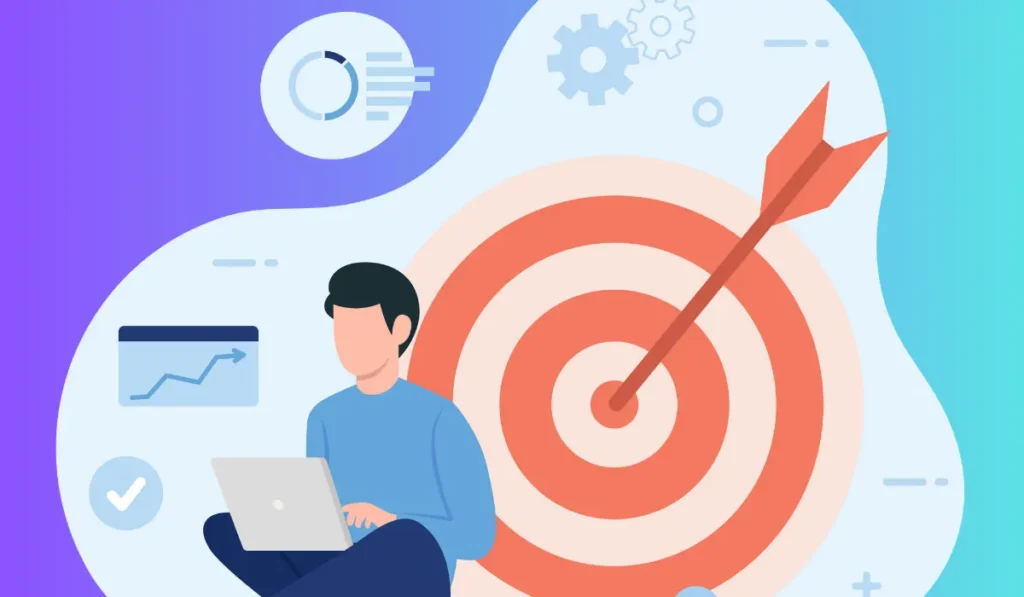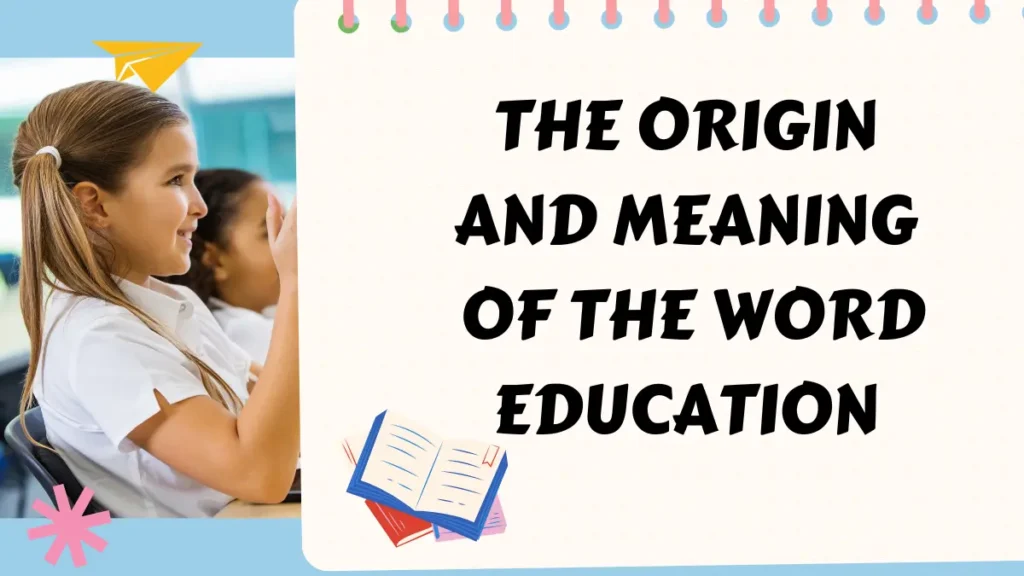Education aims to develop knowledge and skills in individuals for personal and societal growth. Education aims to promote intellectual, moral, physical, social, and emotional development to enable individuals to contribute to their community and the world.
Education empowers individuals with critical thinking, decision-making, and problem-solving skills, preparing them to face challenges and contribute to society.
This article aims to explore the various aims of education and how education contributes to personal and societal growth.

Understanding The Fundamental Aims Of Education
Education is the foundation upon which society is built, shaping the generations of tomorrow. But, what are the fundamental aims of education, and why are they so significant? Let’s explore the key points:
- Education, at its core, aims to develop the intellect and character of individuals, with the ultimate goal of creating better citizens, capable of living harmoniously in society.
- Education seeks to cultivate vital skills, such as critical thinking, problem-solving, and creativity, helping learners to become active participants in the world around them.
- Education helps to shape values, promoting tolerance, social responsibility, and an appreciation for diversity.
- Education is also designed to provide learners with practical skills and knowledge, to equip them for future employment or entrepreneurship opportunities.
Historical And Philosophical Perspectives On Education Aims
Over time, education has evolved in response to changing cultural, economic, and societal needs. Philosophical perspectives have also played a significant role in shaping educational aims. Here are some of the key points:
- The classical period emphasized the cultivation of knowledge and character formation, promoting virtues such as wisdom, courage, and justice.
- During the Renaissance period, education focused on the development of the self, with a strong emphasis on individualism and humanistic values.
- In the Enlightenment era, education moved towards scientific and rational thought, emphasizing reason, and intellectualism.
- The modern era has seen a shift towards utilitarianism, where education aims to meet the economic needs of society, with a focus on technology and vocational training.
Whether rooted in classical philosophy or the demands of contemporary society, education aims to shape the learners of today into the responsible citizens of tomorrow.

Personal Development
Personal development is one of the primary aims of education. Education provides individuals with opportunities to develop and improve their skills, knowledge, and attitudes, leading to personal growth and fulfillment.
Education also helps individuals to develop a sense of self-awareness and self-esteem, which are critical to personal development.
- Education facilitates personal development by providing individuals with the following:
- A diverse range of learning experiences that encourage cognitive, emotional, and social growth.
- Opportunities to develop critical thinking and problem-solving skills, creativity, and innovation.
- Knowledge and understanding of different cultures, points of view, and perspectives, leading to greater empathy and compassion.
- Development of personal and social skills, such as communication, teamwork, leadership, and conflict resolution.
- Exposure to different career and vocational options, helping individuals to make informed decisions about their future.
The Role Of Education In Personal Growth And Well-Being
Personal growth and well-being are essential components of a balanced and fulfilling life. Education plays a crucial role in promoting personal growth and well-being by developing and enhancing key skills and attitudes.
- Education has the following positive impact on personal growth and well-being:
- Provides individuals with a sense of purpose and meaning, contributing to greater life satisfaction and happiness.
- Enhances overall health and well-being, by promoting healthy lifestyle choices and reducing stress.
- Encourages individuals to develop a growth mindset, leading to a sense of personal empowerment and the ability to set and achieve goals.
- Creates opportunities for social interaction and connection, leading to stronger relationships and support networks.
- Increases individuals’ knowledge and understanding of the world, enabling them to make informed decisions about their lives.
Academic Knowledge And Skills
Acquiring knowledge and skills is essential for academic success. Education is not only about obtaining a certificate; it’s about gaining knowledge, skills, and the ability to think critically.
Here are some of the main reasons why acquiring knowledge and skills is crucial.
- Prepares individuals for academic success: Education is the key to academic success. It equips individuals with the necessary knowledge, skills, and abilities to excel in their academic pursuits.
- Enhances career prospects: Acquiring knowledge and skills can lead to better career prospects. Employers tend to hire individuals who have the education and skills necessary to perform the job.
- Increases understanding: Knowledge is power, and education is the key to gaining more knowledge. It increases understanding of the world around us and enables individuals to make informed decisions.
- Improves problem-solving: Education helps individuals to develop critical thinking and problem-solving skills. By acquiring knowledge and skills, individuals can think critically and solve complex problems.
How Education Prepares Individuals For Academic Success
Education plays a vital role in preparing individuals for academic success. Here are some of the ways in which education prepares individuals for academic success.
- Developing foundational skills: Education helps individuals to develop foundational skills such as reading, writing, and arithmetic. These skills are essential for success in any academic field.
- Building knowledge and expertise: Education helps individuals to build knowledge and expertise in their chosen field of study. It equips individuals with the knowledge and skills necessary to succeed academically and professionally.
- Fostering intellectual curiosity: Education fosters intellectual curiosity by encouraging individuals to explore and learn about new subjects and ideas. This encourages individuals to think critically and creatively.
- Providing mentorship and guidance: Education provides mentorship and guidance to individuals. This can be in the form of teachers, professors, or other academic advisors, who can offer advice and support to help individuals achieve academic success.

Social Responsibility
Education is not just about acquiring knowledge or skills; it is also about developing responsible and conscientious citizens who respect the society they live in.
As such, education plays an important role in shaping the social responsibility of individuals. Here are some key points to consider:
- Education isn’t just about teaching math, science, and english. It is also about instilling values and principles that foster responsible behavior towards the community and the planet.
- Teaching high moral values such as compassion, justice, empathy, and honesty can lead to the creation of better citizens who’ll be more respectful and cooperative towards each other, thus helping to make the society a better place to live.
- Encouraging students to be active members of the community, by participating in social activities like charity works, disaster response and cleaning campaigns can help them develop a sense of duty towards society’s welfare.
The Role Of Education In Shaping Responsible Citizens
Education can also contribute to the formation of responsible citizens by molding and shaping the worldviews and attitudes of students. Here are some additional points:
- Education can help students understand responsibility towards themselves, their families, the community and the planet, each requiring a different level of attention.
- Studies suggest education increases an individual’s civic engagement as it allows for the acquisition of knowledge and skills necessary for active participation in community and social affairs.
- By promoting an inclusive and diverse learning environment, educators can teach students to appreciate and honor human differences, leading to more tolerant and empathetic societies.
Marketable Skills
It is no secret that education opens doors to numerous career opportunities. The quality and level of education play a critical role in determining how successful a person will be in their chosen career path.
Here are a few reasons why education is essential for career success:
- Education helps to develop critical thinking, problem-solving, and decision-making skills, which are vital in the workplace.
- A higher level of education usually results in a higher income and more excellent job opportunities.
- Many employers require a degree or certification as a prerequisite for employment or promotion.
Developing Skills That Are Marketable In The Job Market
To succeed in the job market, one needs to possess in-demand skills that are valuable to employers. These skills help to make one a more desirable candidate for job vacancies and open doors to various career prospects. Here are some critical job marketable skills:
- Leadership and management skills: The ability to manage a team, take charge of a project, and delegate tasks.
- Problem-solving skills: Employers value individuals who can think critically and come up with practical solutions to problems.
- Technical skills: These are specialized skills that are necessary for a particular job. For instance, web development, programming, or graphic design.
Frequently Asked Questions
What Is The Aim Of Education?
The aim of education is to develop an individual’s mental, physical, and emotional abilities.
How Does Education Help In Personal Growth?
Education helps in personal growth by enhancing knowledge, skills, and values to live a fulfilling life.
What Is The Role Of Education In Society?
The role of education in society is to create responsible citizens, promote social justice, and improve economic development.
Conclusion
Education is the foundation for sustainable development in any society. It is therefore imperative that we strive to achieve the aims of education in their entirety. The overarching goal of education is to develop individuals who are able to make meaningful contributions to their society. This is achievable through the inculcation of knowledge, skills, and values that prepare learners for the challenges of the world. Education also plays a role in promoting social cohesion and reducing inequality. By fostering a culture of learning, we can create a community of individuals who will positively impact their society.


